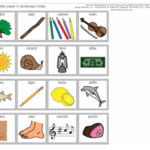Words That Start With The Letter D In Spanish
1. Dado (dice)
2. Dar (to give)
3. Deseo (wish)
4. Día (day)
5. Diente (tooth)
6. Dolor (pain)
7. Dormir (to sleep)
8. Ducha (shower)
9. Dulce (sweet)
10. Dólar (dollar)
11. Deporte (sport)
12. Duda (doubt)
13. Desayuno (breakfast)
14. Destino (destination)
15. Dibujar (to draw)
16. Dama (lady)
17. Derramar (to spill)
18. Desechar (to discard)
19. Domicilio (address)
20. Donar (to donate)
21. Después (after)
22. Debajo (under)
23. Disfraz (costume)
24. Disfrutar (to enjoy)
25. Defensa (defense)
26. Descansar (to rest)
27. Despedida (farewell)
28. Despegar (to take off)
29. Despertar (to wake up)
30. Diferente (different)
More About Words That Start With The Letter D In Spanish
Welcome to another linguistic exploration of the Spanish language! Today, we will delve into an exciting journey through words that start with the letter “D” in Spanish. As we traverse the vast realm of vocabulary, we will uncover words that are both familiar and entirely new, offering a linguistic feast for your mind.
Spanish, a romance language derived from Latin, boasts a rich vocabulary that spans across various sectors, including science, art, culture, and everyday life. The letter “D” in Spanish carries a myriad of words that showcase the beauty and diversity of this magnificent language.
Let’s begin with an everyday word that holds great significance in any culture “día,” meaning “day.” This simple yet vital noun exemplifies the essence of existence, signifying the passage of time, the illumination of our surroundings, and the experiences that shape our lives. With a single syllable, this word encompasses the entire concept of diurnal moments that we cherish.
From the realm of nature, we encounter the enchanting term “desierto,” which means “desert.” This noun conjures images of vast, arid landscapes, divine sunsets, and sweltering heat. With its mellifluous sound, “desierto” not only describes a geographical phenomenon but also evokes a sense of awe and mystique.
For those with a sweet tooth, the word “dulce” is sure to awaken your taste buds. This adjective, meaning “sweet,” represents the delightful indulgence in sugar-coated confections, honeyed flavors, and the pleasure of experiencing a moment of saccharine bliss. Whether it be a warm churro or a delicate pastry, the word “dulce” reminds us of life’s delectable joys.
From the culinary realm, we venture into an intellectual pursuit “duda,” meaning “doubt.” This noun encapsulates the intricacies of human inquiry, representing moments of uncertainty, curiosity, and the quest for knowledge. “Duda” reminds us that doubt is an essential aspect of growth, allowing us to question, analyze, and ultimately understand the world around us.
As we continue our linguistic voyage, we encounter a term that resonates with anyone passionate about music “danza,” translating to “dance.” This noun not only embodies the graceful movement of bodies in rhythm but also represents the cultural heritage and individual expression found in various dance forms. Be it the tango, salsa, or ballet, “danza” symbolizes the universal language of movement.
Moving onto a more scientific realm, we encounter the word “decano,” meaning “dean.” This noun refers to an academic leader or an administrative officer responsible for overseeing a specific department within an institution. “Decano” represents the embodiment of wisdom, expertise, and guidance, serving as a pillar of knowledge for future generations.
As our linguistic escapade nears its conclusion, we delve into the world of literature with the term “drama.” This noun, borrowed from Greek, signifies a compelling narrative, filled with conflict, emotions, and profound human experiences. Whether encountered on stage or through the pages of a book, “drama” captivates us and offers glimpses into the human condition like no other art form.
The magic of the Spanish language lies not only in its words’ individual meanings but also in the interconnectedness of its vocabulary. Each word tells a story, holds a cultural significance, and invites exploration of the world around us. Words that start with the letter “D” in Spanish are but a small sample of the linguistic marvels that await those who are eager to dive deeper into this captivating language.
So, join me on this linguistic journey as we unravel new words, uncover hidden meanings, and celebrate the remarkable tapestry of human expression that is the Spanish language. Stay tuned for subsequent entries where we will continue to explore the vast and enchanting world of Spanish vocabulary.
Words That Start With The Letter D In Spanish FAQs:
1. ¿Qué significa la palabra “desayuno” en español?
– La palabra “desayuno” significa la primera comida del día, generalmente tomada por la mañana.
2. ¿Dónde se habla el idioma español?
– El idioma español se habla en muchos países, incluyendo España, México, Argentina, Colombia, y muchos más.
3. ¿Cuántas conjugaciones verbales hay en español?
– En español, existen tres conjugaciones verbales: -ar, -er, y -ir. Cada una tiene sus propias conjugaciones específicas.
4. ¿Cuál es el día festivo más importante en España?
– El día festivo más importante en España es el Día de la Fiesta Nacional, también conocido como el Día de la Hispanidad, que se celebra el 12 de octubre.
5. ¿Qué es una “duda” en español?
– Una “duda” es una incertidumbre o falta de conocimiento sobre algo en particular. Se utiliza para expresar una pregunta o inseguridad.
6. ¿Cuál es el significado de la palabra “divertido” en español?
– La palabra “divertido” significa entretenido o que produce alegría y diversión.
7. ¿Qué es un “delfín” en español?
– Un “delfín” es un mamífero marino perteneciente a la familia de los cetáceos. Son conocidos por su inteligencia y agilidad en el agua.
8. ¿Cómo se dice “gracias” en español?
– Se dice “gracias” para expresar agradecimiento por algo. Es una palabra muy común en el idioma español.
9. ¿Qué es una “dirección” en español?
– Una “dirección” es la ubicación o posición física de una persona, lugar o cosa. También puede referirse a la forma de llegar a un lugar específico.
10. ¿Cuál es el significado de la palabra “deportista” en español?
– La palabra “deportista” se refiere a una persona que practica deportes o actividades físicas de forma regular.















